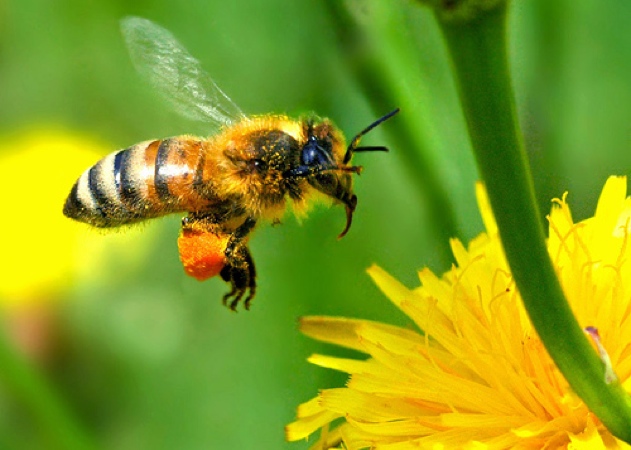
Growers work to protect crops and bees
Grain Growers of Canada and Manitoba Corn Growers are taking steps to protect bees and crops and have released position papers on the issue
Research & Development
Sustainability
Bake & Snack Food
Fruit & Vegetables
Grain & Oilseed Milling

Ottawa/Winnipeg, Man. – Grain and corn growers have released an action plan on how they’re going to protect their crops – and bees.
The Grain Growers of Canada and the Manitoba Corn Growers Association submitted position papers late last year to Health Canada’s Pest Management Regulatory Agency’s (PMRA) “Consultation on Action to Protect Bees from Exposure to Neonicotinoid Pesticides.”
Neonicotinoid pesticides have been blamed for bee deaths.
When traces of the pesticide were found in dead bees last fall, Health Canada linked the decline in bee populations to the insecticide, reported TheStar.com.
In 2012, the PMRA found neonicotinoids in 70 per cent of 127 samples, prompting the government to release a mitigation strategy to reduce bee exposure to these insecticides, reported TheStar.com. In 2013, the presence of neonicotinoids was found in 75 per cent of 102 dead bee samples.
Neonicotinoids belong to a class of insecticides that act on the nervous system. The chemicals are used to coat seeds. Beekeepers and environmentalists want the substances banned in Canada and say they’re behind the declining bee population. In Europe, the E.U. announced a two-year moratorium on the chemicals last April, reported TheStar.com. But many other experts in Canada say there isn’t enough evidence to support a ban.
The Grain Growers of Canada explained, as part of its response to Health Canada’s call for feedback on the issue, that the problems facing honey bees are complex. Bee health is a complicated issue with numerous factors needing to be considered including Varroa mites, disease and weather.
As farmers, the Grain Growers added, we have a vested interest in bee health. For this reason, we request that the PMRA continue to look into this matter with a science-based lens. In investigating these recent incidents of pollinator phenomena, the PMRA needs to take into account that farmers have been successfully using these particular products since the early 1990s and they continue to be used in other parts of the world, including Western Canada, without the types of incidents being reported in some regions of Ontario and Quebec.
In an effort to protect the bees and crops, the Grain Growers and Manitoba Corn Growers is working with the PMRA, Health Canada and CropLife Canada to develop best management practices for farmers using treated seed.
The growers said in a statement that industry is also launching a new seed lubricant powder for use this year for corn and soybean. This new fluency agent reduces dust and significantly reduces the amount of active ingredient that may be harmful to pollinators.
The Grain Growers of Canada represents more than 50,000 active grain, oilseed and pulse producers. It’s an umbrella organization with 14 provincial and regional grower groups from across the country involved in the grain, pulse and oilseed sectors.